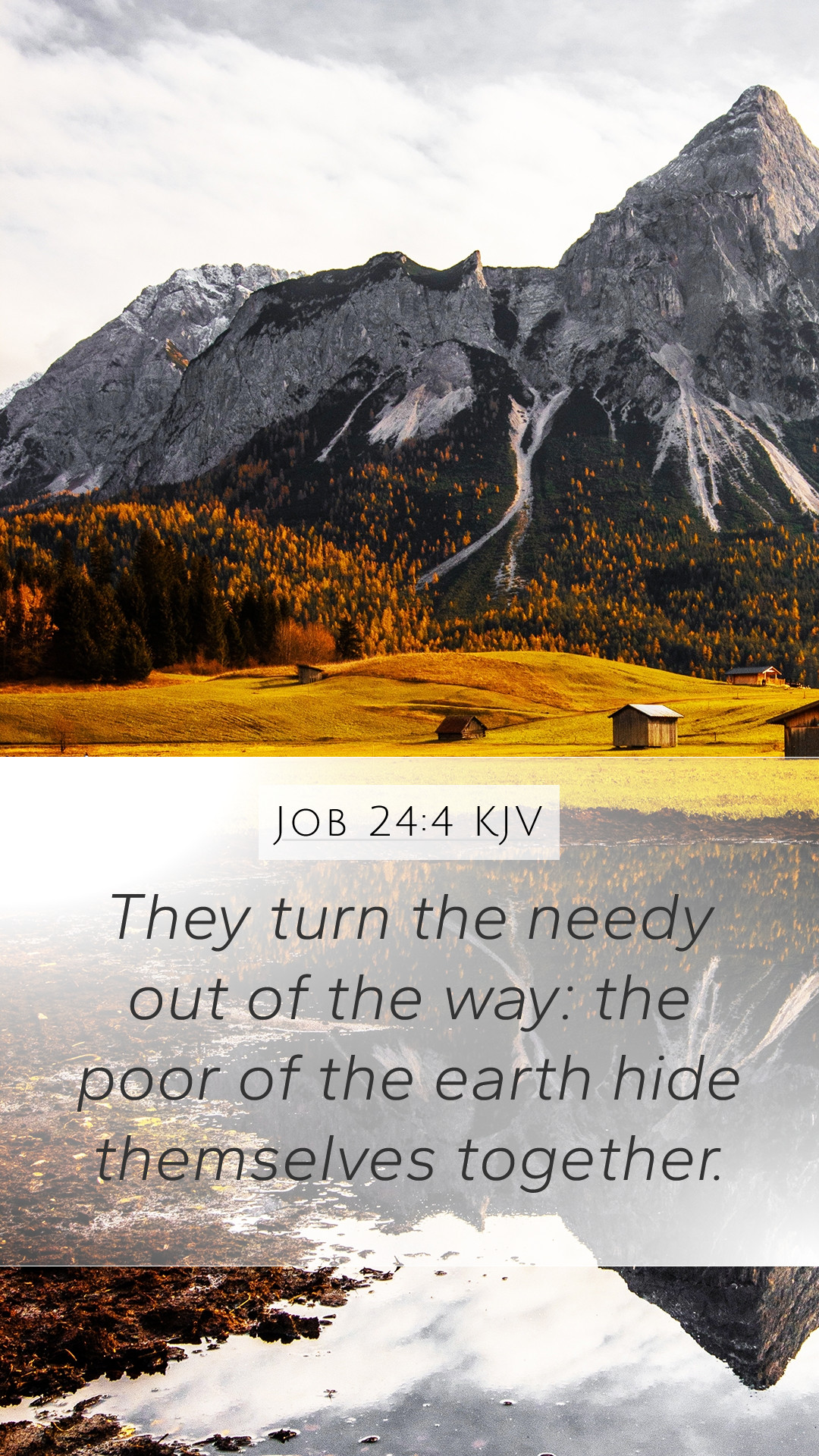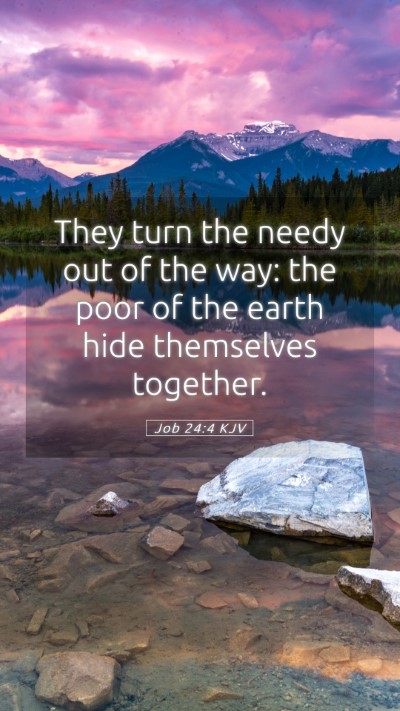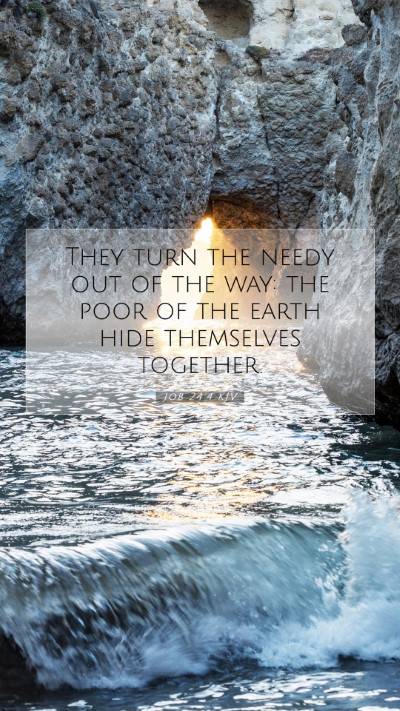Old Testament
Genesis Exodus Leviticus Numbers Deuteronomy Joshua Judges Ruth 1 Samuel 2 Samuel 1 Kings 2 Kings 1 Chronicles 2 Chronicles Ezra Nehemiah Esther Job Psalms Proverbs Ecclesiastes Song of Solomon Isaiah Jeremiah Lamentations Ezekiel Daniel Hosea Joel Amos Obadiah Jonah Micah Nahum Habakkuk Zephaniah Haggai Zechariah MalachiJob 24:4 Meaning
What is the meaning of Job 24:4?
They turn the needy out of the way: the poor of the earth hide themselves together.
Job 24:4 Bible Verse Meaning
Understanding Job 24:4
Verse: Job 24:4 - "They drive away the donkey of the fatherless; they take the widow's ox for a pledge."
This verse addresses the injustices faced by vulnerable members of society, particularly the fatherless and widows. It highlights the exploitation and cruelty of those who may take advantage of individuals who lack social and economic protection.
Bible Verse Meanings
The essence of Job 24:4 centers around the themes of exploitation and lack of compassion, especially in the context of social justice. As recognized by various commentators:
- Matthew Henry: He notes that the inhumane treatment of the fatherless and widows signifies a broader disregard for societal morals and standards. Henry emphasizes that such acts reveal the wickedness that can permeate human behavior, especially in times of economic distress.
- Albert Barnes: Barnes elucidates that this verse portrays a scenario where the weak and defenseless are targeted by the powerful. He sees this as a reflection of the societal issues of Job's time, where the disregard for the rights of the poor and helpless was prevalent.
- Adam Clarke: Clarke highlights the importance of the fatherless and widows in biblical literature, as representatives of the most vulnerable. He underscores the fact that God’s laws were intended to protect these individuals from exploitation.
Historical Context
Understanding the historical context of Job is crucial for a deeper insight into this verse. Job lived during a time of great suffering, not just personally, but also within the societal framework. Ancient Near Eastern customs mandated that the poor and vulnerable be afforded certain protections that were often violated.
Scripture Analysis
In Job 24:4, the imagery of a fatherless donkey and a widow's ox serves a dual purpose: it illustrates the specific injustices occurring in daily life while also invoking a moral critique against the prevailing societal norms. The verse acts as both a lament and a call to justice, raising questions about the righteousness of God amid human wrongdoing.
Significance of Job 24:4
This verse is significant in its condemnation of social injustices and provides insight into God's heart for the vulnerable. It reaffirms the moral imperative that society must uphold justice and compassion, highlighting the disconnect that can exist between societal actions and divine expectations.
Application of Job 24:4
For contemporary readers, Job 24:4 challenges us to reflect on how we treat the marginalized in our society today. It speaks to the moral responsibility that individuals and communities have to advocate for those who are unable to speak for themselves.
Cross References
Several other Bible verses resonate with the themes found in Job 24:4, including:
- Exodus 22:22-24: "You shall not afflict any widow or fatherless child..."
- Deuteronomy 24:17: "You shall not pervert the judgment due the stranger or the fatherless..."
- Psalms 82:3: "Defend the poor and fatherless; do justice to the afflicted and needy."
Bible Verse Interpretations
When interpreting Job 24:4, it’s essential to consider not only the immediate context but also the overarching biblical narrative concerning justice and mercy. The Bible continually calls its followers to take care of the needy, underscoring the relevance of this verse across time.
Conclusion
In summary, Job 24:4 serves as a powerful reminder of the social responsibilities that believers must uphold, especially in ensuring justice for the vulnerable. Through understanding this scripture, we can apply its lessons to our daily lives, guiding our actions towards compassion and advocacy.
Further Bible Study
For those seeking deeper insights, consider joining bible study groups, utilizing bible study tools, or engaging in online bible study to discuss and explore these themes further.


